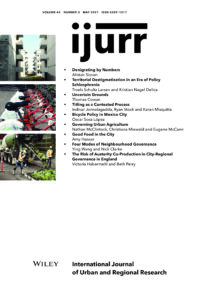Drawing on multi‐sited fieldwork and discourse analysis of government orders, we investigate land‐titling programmes that distribute marginal public land to the poor in both urban and rural South India. We suggest understanding this type of distribution as a process of creating a subaltern category of land ownership to facilitate governance of lands and people entangled in de facto land tenures. Although these titling initiatives have been largely ignored or dismissed as failures in the existing literature, we argue that they have had significant socio‐political effects. First, we argue that, despite the attempt to create a differentiated property regime, titling engenders a complex juridico‐legal terrain where the bounds of ‘subaltern citizenship’ are contested and negotiated. Second, we show that titling is better understood as a process that creates new social relations and new expectations of the normative relationship between state and citizen. Finally, we suggest that the practices and discourses of the land bureaucracy are a window into the production of spatial relations based on pressures from above and below. In sum, we show how a history of iterative titling has resulted in the entanglement of struggles over possession, personhood and citizenship for marginalized groups in the region.
Details
Written by:
Indivar Jonnalagadda, Ryan Stock & Karan Misquitta
Digital Object Identifier (DOI)
10.1111/1468-2427.13002
About DOI

